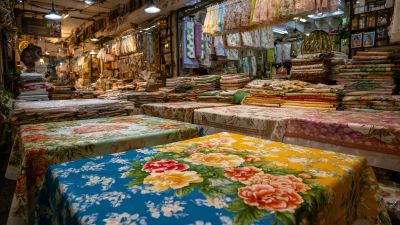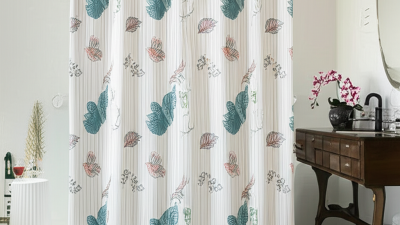In the quest for sustainable home textiles, cotton tablecloths emerge as a top contender, backed by compelling industry data. According to a report by the Textile Exchange, cotton remains one of the most widely used natural fibers globally, with over 25 million tons produced annually. The use of organic cotton, which has seen a 24% increase in production in recent years, reflects a growing consumer preference for eco-friendly options. With their biodegradable nature and the ability to be reused multiple times, cotton tablecloths significantly reduce waste compared to single-use alternatives. Furthermore, studies show that cotton production can contribute to local economies while implementing sustainable farming practices, making it a holistic choice for environmentally conscious consumers. As sustainability trends continue to evolve, opting for cotton tablecloths not only enhances home aesthetics but also aligns with a commitment to a greener future.
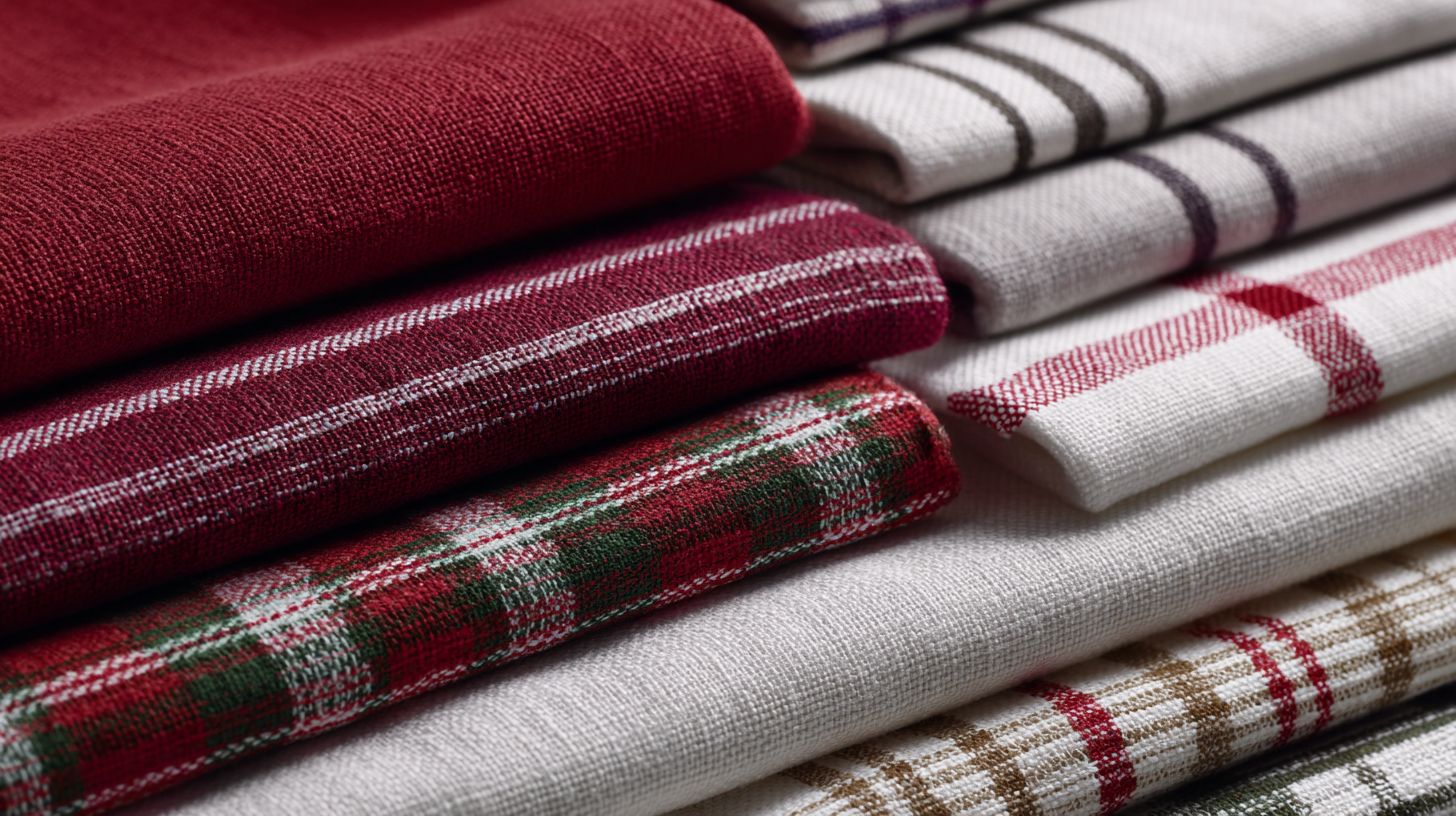
Cotton tablecloths are not only a stylish addition to any dining setup but also embody several environmental benefits that make them a sustainable choice. One of the primary advantages of cotton is its biodegradable nature, which means that when it's disposed of, it decomposes naturally without harming the environment. This contrasts sharply with synthetic fabrics that can persist in landfills for hundreds of years, contributing to pollution and environmental degradation.
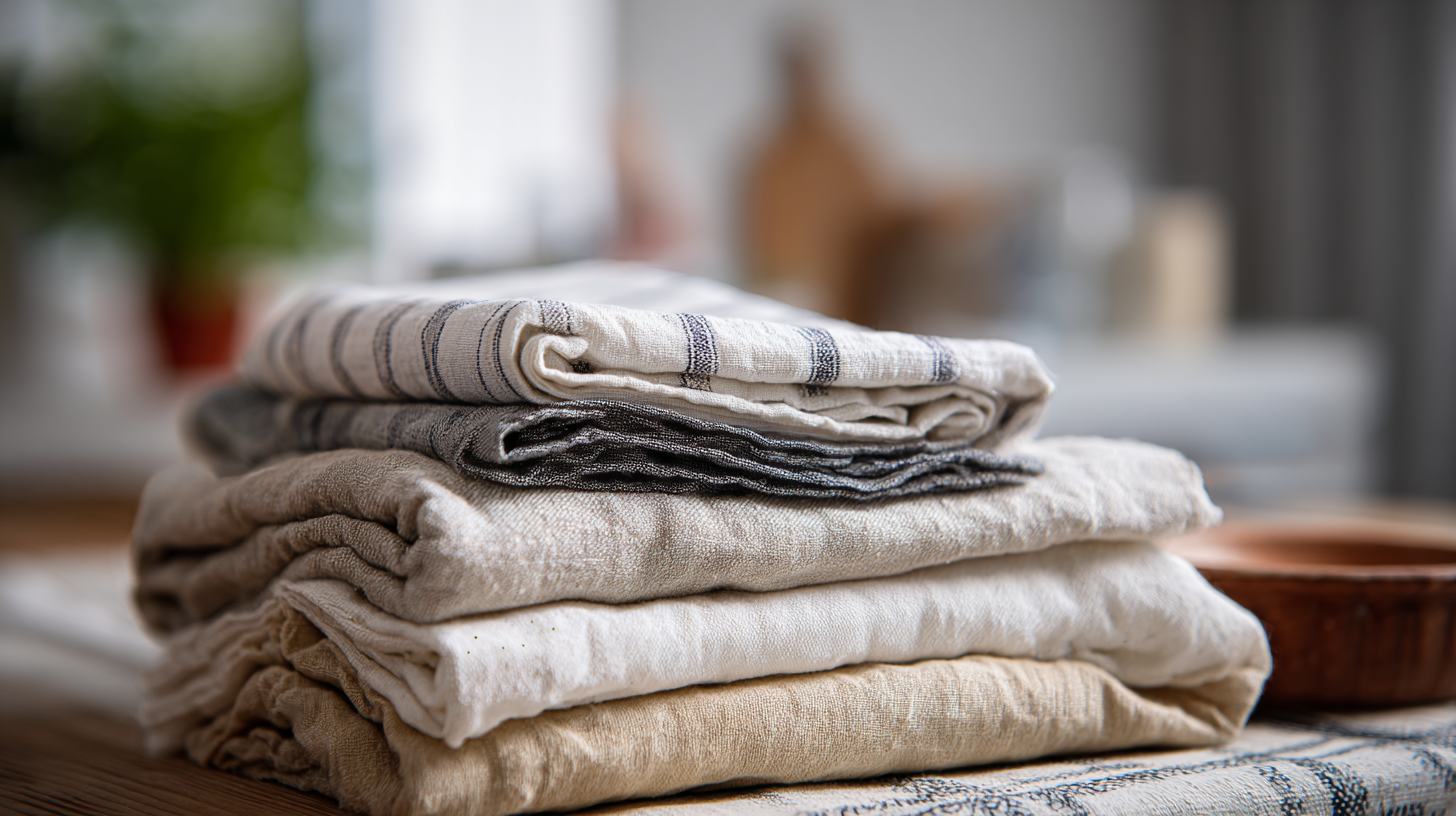
Moreover, cotton is a renewable resource. Unlike petroleum-based fabrics, cotton can be grown year after year, provided that sustainable farming practices are employed. Many cotton producers are increasingly adopting organic methods that reduce pesticide use and promote healthier soil. By opting for cotton tablecloths, consumers are supporting farming practices that prioritize ecological health, decrease water pollution, and help protect biodiversity. These choices not only enhance the sustainability of home textiles but also contribute to a more environmentally conscious lifestyle.
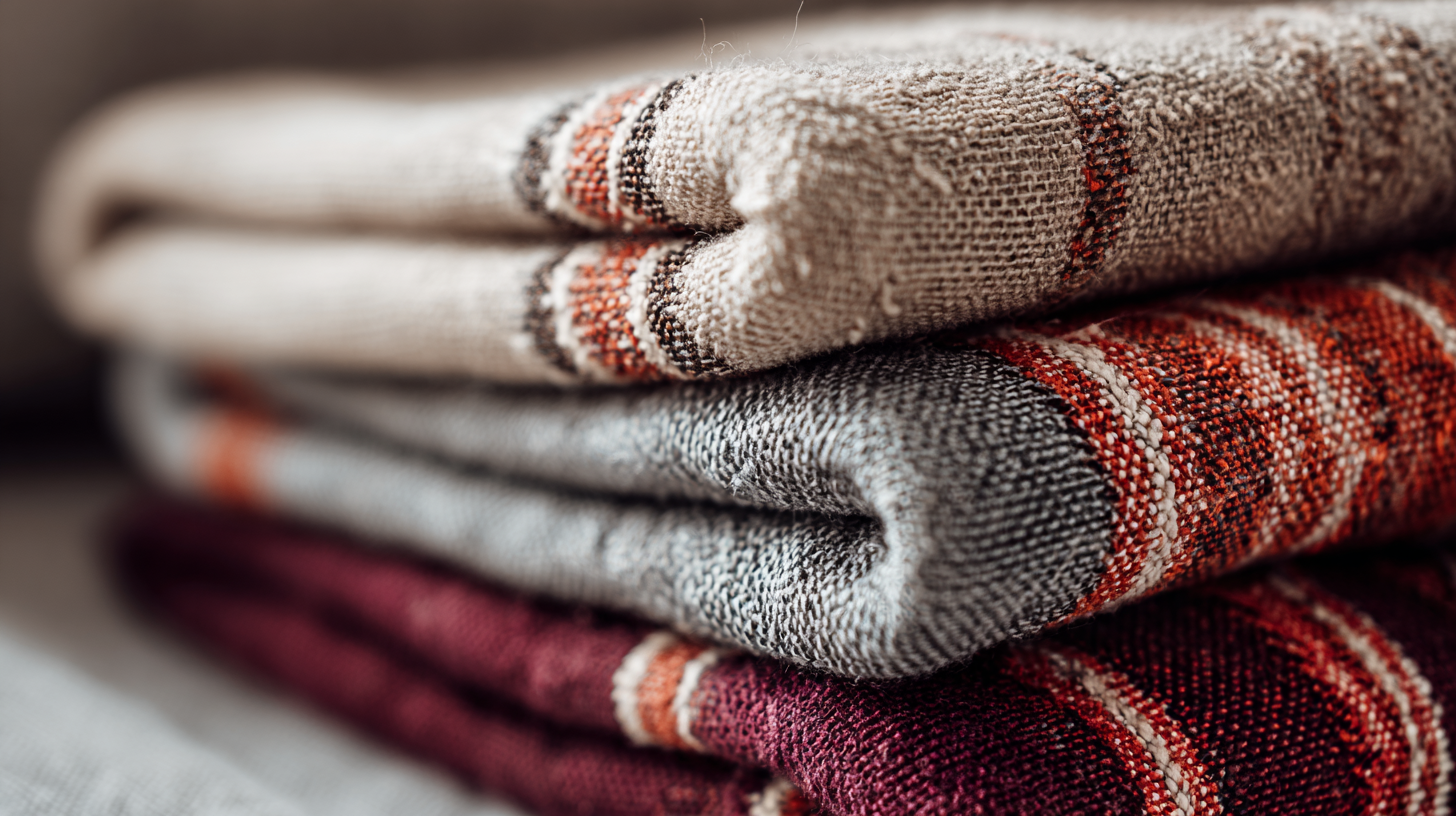 Cotton tablecloths are gaining recognition as a sustainable choice in the home textiles industry, particularly due to their long-lasting durability. Unlike synthetic fabrics which may wear out faster, cotton's natural fibers provide exceptional strength and resilience. This durability means that cotton tablecloths can withstand frequent use and laundering, ultimately reducing the need for frequent replacements. The longer lifespan of cotton textiles not only saves money in the long run but also minimizes waste, contributing positively to environmental sustainability.
Cotton tablecloths are gaining recognition as a sustainable choice in the home textiles industry, particularly due to their long-lasting durability. Unlike synthetic fabrics which may wear out faster, cotton's natural fibers provide exceptional strength and resilience. This durability means that cotton tablecloths can withstand frequent use and laundering, ultimately reducing the need for frequent replacements. The longer lifespan of cotton textiles not only saves money in the long run but also minimizes waste, contributing positively to environmental sustainability.
Tips: When selecting cotton tablecloths, look for those made from organic cotton to further enhance their eco-friendly benefits. Additionally, consider investing in high-quality, heavyweight cotton that will better resist wear and retain its beauty over time. Proper care, such as washing in cold water and air-drying, can extend the life of your cotton tablecloths even further, making them a truly sustainable option for your home.
Cotton tablecloths stand out in the realm of sustainable home textiles, primarily due to their biodegradability. Unlike synthetic materials that can persist in landfills for centuries, cotton is a natural fiber that breaks down easily, minimizing its environmental footprint. This characteristic not only helps reduce waste but also enhances soil quality when cotton fibers decompose, providing nutrients back to the earth. By choosing cotton, consumers contribute to a healthier planet, aligning with broader sustainable practices that are increasingly vital in today’s eco-conscious market.
The conversation around sustainability in textiles often brings to light the comparison between sustainable cotton and alternatives like recycled polyester. While each material has its merits, cotton's natural biodegradability offers a significant advantage over synthetic options, which can generate microplastics and other harmful pollutants. As the industry seeks greener production methods, investing in cotton not only supports sustainable cultivation practices but also encourages a shift away from the deluge of fast fashion that significantly harms our environment. Embracing cotton textiles is thus a crucial step toward creating a more sustainable home while fostering a circular economy in the textiles industry.
When considering sustainability in the home textiles industry, cotton tablecloths stand out due to their energy efficiency in production. Cotton cultivation typically requires less energy compared to synthetic materials, which are derived from fossil fuels. The farming practices associated with cotton can be optimized to use renewable energy sources, reducing the overall carbon footprint during the production process. By choosing cotton, consumers are supporting a material that inherently demands less energy and contributes to a more sustainable textile industry.
**Tip:** To further enhance sustainability in your home, consider sourcing organic cotton tablecloths. Organic farming avoids synthetic pesticides and fertilizers, promoting healthier ecosystems and more energy-efficient methods.
Moreover, the life cycle of cotton tablecloths is more favorable for the environment. They can be washed and reused multiple times without significant degradation, while synthetic materials often have a shorter lifespan, leading to more waste. Opting for high-quality cotton means investing in products that not only reduce energy consumption initially but also offer longevity, ultimately making them a more sustainable choice.
**Tip:** When caring for your cotton tablecloths, wash them in cold water and air dry them to maximize their lifespan and minimize energy use.
The cotton industry has made significant strides towards ethical practices that support a more sustainable future. By prioritizing organic farming methods, many cotton producers are reducing their reliance on harmful pesticides and synthetic fertilizers. This not only protects the soil and surrounding ecosystems but also ensures that cotton products are safe for consumers. Supporting farms that adhere to these ethical standards contributes to a healthier environment and promotes biodiversity, making cotton tablecloths a responsible choice for any home.
Furthermore, the rise of fair trade practices within the cotton industry has empowered farmers and their communities economically. By choosing cotton textiles that are certified fair trade, consumers are directly supporting equitable payment practices and better working conditions for laborers. This fosters a more ethical supply chain from cotton cultivation to the final product, promoting social sustainability. Such choices in home textiles not only elevate home aesthetics but also align with values of social responsibility and environmental consciousness.
This chart illustrates the sustainability factors associated with cotton tablecloths, highlighting their benefits in terms of biodegradability, water usage, pesticide reduction, carbon footprint, and ethical labor practices. Each factor is scored based on its importance in promoting a greener future in the home textiles industry.
